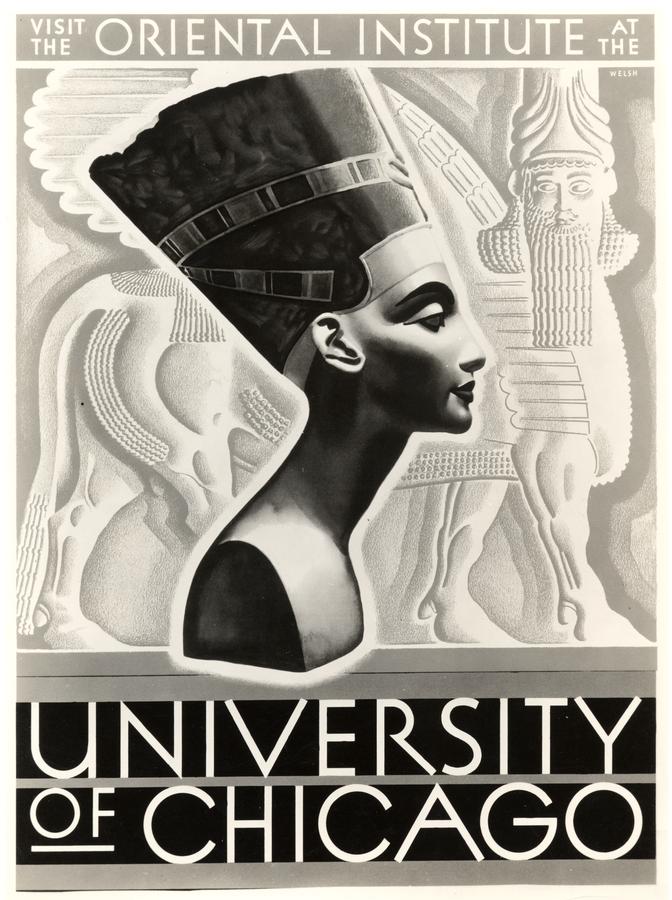skip to main |
skip to sidebar
Gil Stein appointed to third term as Oriental Institute director
Gil Stein, a leading scholar of ancient Mesopotamia, has been reappointed for a third five-year term as director of the Oriental Institute, a position he has held since joining UChicago in 2002.
“The Oriental Institute serves as a nexus for research on campus on
the ancient Near East, with an extraordinary collection of objects
recovered during OI excavations,” wrote Provost Thomas Rosenbaum in a
message to faculty. “Under Gil’s leadership, the OI has implemented the
first stage of the integrated Database, a long-term project to connect
the Oriental Institute’s major archives including hundreds of thousands
of objects, images and data records into a single searchable digital
resource, and established the Public Education Department with a broad
mission of outreach to the University community, elementary and
secondary school students, and the public.”
The U.S. State Department recently chose the Oriental Institute to
help inventory collections at the National Museum of Afghanistan (Kabul)
and develop a bilingual English-Dari database of the museum’s holdings,
Rosenbaum added.
Over the past five years, the Oriental Institute has made major strides in both archaeological and text-based scholarship. The Chicago Assyrian Dictionary
has been completed after 90 years of work, and the Institute is now
developing a new project to explore and document the early development
of writing systems in Mesopotamia during the third millennium B.C.
The Persepolis Fortification Archive project and the Epigraphic
Survey are using advanced digital technology to document crucial written
records of the Persian Empire and ancient Egypt. In the last five years
the Oriental Institute has dramatically increased the scope of its
archaeological research, initiating four new excavations in Egypt
(Edfu), Syria (Tell Zeidan), Israel (Marj Rabba in the Galilee) and the
first joint American-Palestinian excavations in the West Bank at Khirbet
al-Mafjar (early Islamic Jericho)
“The Oriental Institute is a uniquely valuable resource for
scholarship and for the University of Chicago. I deeply appreciate being
given the opportunity to contribute to the ongoing work of
strengthening the Institute and building its research capacity for the
future,” Stein said.
He said his top two priorities are to expand the scope of Oriental
Institute research, and to secure the resources to build a solid
foundation in people, programs and infrastructure. “These are the
crucial building blocks to maintain our position as one of the world’s
leading centers of innovation and discovery in studying the
civilizations of the ancient Middle East,” Stein said.
He noted that the region is sometimes unstable politically. “By
ensuring the critical mass of scholarly expertise and resources at the
Oriental Institute, we will be able to move rapidly and flexibly take
advantage of these new research opportunities when they do arise —
especially in key regions such as Iraq and Iran,” Stein added.
A professor in Near Eastern Languages and Civilizations, Stein has
been conducting fieldwork in Syria at Tell Zeidan, where he is
investigating the earliest precursors of Mesopotamian urbanism in the
Ubaid period — ca. 5300 B.C. He also has worked in Turkey, where he has
overseen important excavations at Hacinebi, a 5,500-year-old
Mesopotamian colony in the Euphrates River valley of southeast Turkey
that is part of the world's first-known colonial system.
Stein is the author of Rethinking World Systems: Diasporas, Colonies and Interaction in Uruk Mesopotamia, edited The Archaeology of Colonial Encounters and The Uruk Expansion: Northern Perspectives from Hacinebi, Hassek Höyük and Gawra, and co-edited (with Mitchell Rothman) Chiefdoms and Early States in the Near East: The Organizational Dynamics of Complexity.
He has been a National Science Foundation graduate fellow, a Fulbright
scholar in Turkey, a resident scholar at the School of American
Research, and has held a Howard Fellowship from Brown University.
Prior to joining UChicago, he was a professor of anthropology at
Northwestern University. He received his bachelor’s in archaeology from
Yale University (1978) and his PhD in anthropology from the University
of Pennsylvania (1988).
 Gil Stein
Gil Stein




 Stumble It!
Stumble It!

